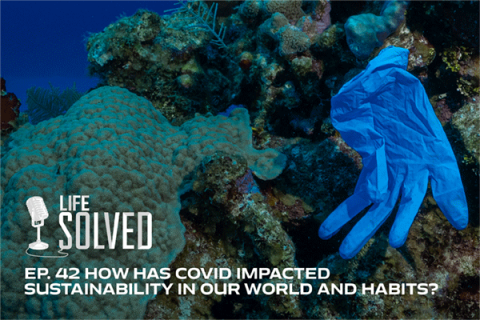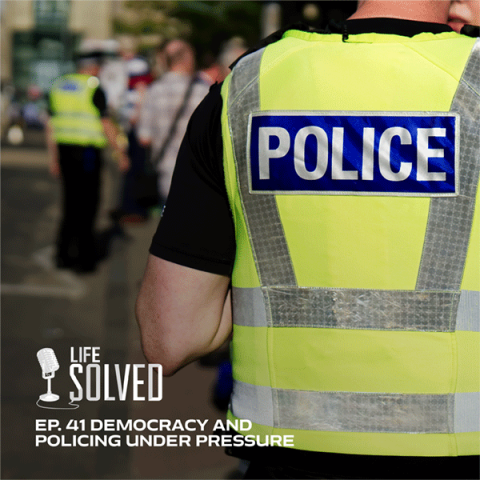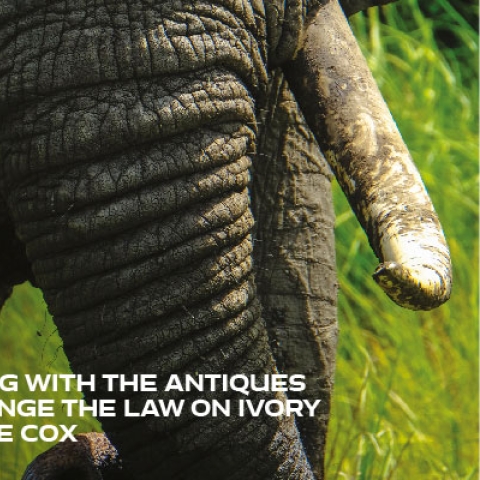

Has the coronavirus pandemic created a dramatic setback for the global environmental crisis?
35 min listen
This time we’re asking if the coronavirus pandemic has created a dramatic setback for the global environmental crisis.
From the vast increase in the use and disposal of PPE such as face masks and gloves to the changing consumer habits that arose from lockdown, we look at how the plastics problem has been exacerbated by Covid-19 conditions.
At the same time, we ask where there might be some hopeful green lights on the horizon as the individuals, governments and international collaborations take action.
Professor Steve Fletcher and Dr Keiron Roberts explain how the University of Portsmouth’s Revolution Plastics initiative is sharing insights to help make impactful policy.
And Dr Sianne Gordon-Wilson tells us about her research into how our consumer behaviour and sustainable attitudes changed during the pandemic.
You can listen to Life Solved on all major podcast players, whether via Apple, Spotify, Google Podcasts or other apps. Just search for 'Life Solved' and press the subscribe button.
Episode transcript:
John Worsey: Thanks for downloading Life Solved. I'm John Worsey, and we've been hearing from researchers from the University of Portsmouth on how life looks set to change for good following the covid-19 pandemic. Of all the national and global trends we've seen emerge, our increased awareness of plastics pollution and sustainability has taken a unique course. Prior to the pandemic, conversations were taking place around how we as individuals and nations might limit or reverse the damage caused by pollution to people, planet and environments. Then, from March 2020, record-breaking amounts of PPE found their way into our lives and our refuge systems globally. At the same time, many of us in lockdown sought comfort and respite in nature, appreciating the delicate balance of our local environments. If there is anything we might want to keep as we go forward, it is a renewed passion for protecting people and planet from pollution and unsustainable practices.
Steve Fletcher: What we're looking to do at the University of Portsmouth is to generate an evidence base for the types of policy interventions and the type of public engagement with plastics that actually do make a difference quickly.
John Worsey: As nations of the world collaborate on the path to net-zero carbon emissions by 2050, sectors, organisations and businesses on every level are undergoing a revolution in sustainable agendas. Our values and economies are changing for good and our actions in tackling waste and pollution, building sustainable policy and cutting carbon emissions are all connected in this global vision of our future. But did Coronavirus set us back even further than we were before? How are our individual habits set to change and what might be the solutions on an international scale? We'll find out this time on Life Solved. We're starting our exploration of changing sustainability habits close to home. Our attitudes to waste and the way we consume products has a fundamental impact on supply ch
Previous episode
Next episode
Discover more episodes
Democracy and policing under pressure
6 July 2021
29 min listen

Working with the antique trade to change the law on ivory
Caroline Cox explains how her work in addressing the illegal trade in animals and plants led to supporting law change in the UK. Listen now.
20 July 2021
27 min listen

